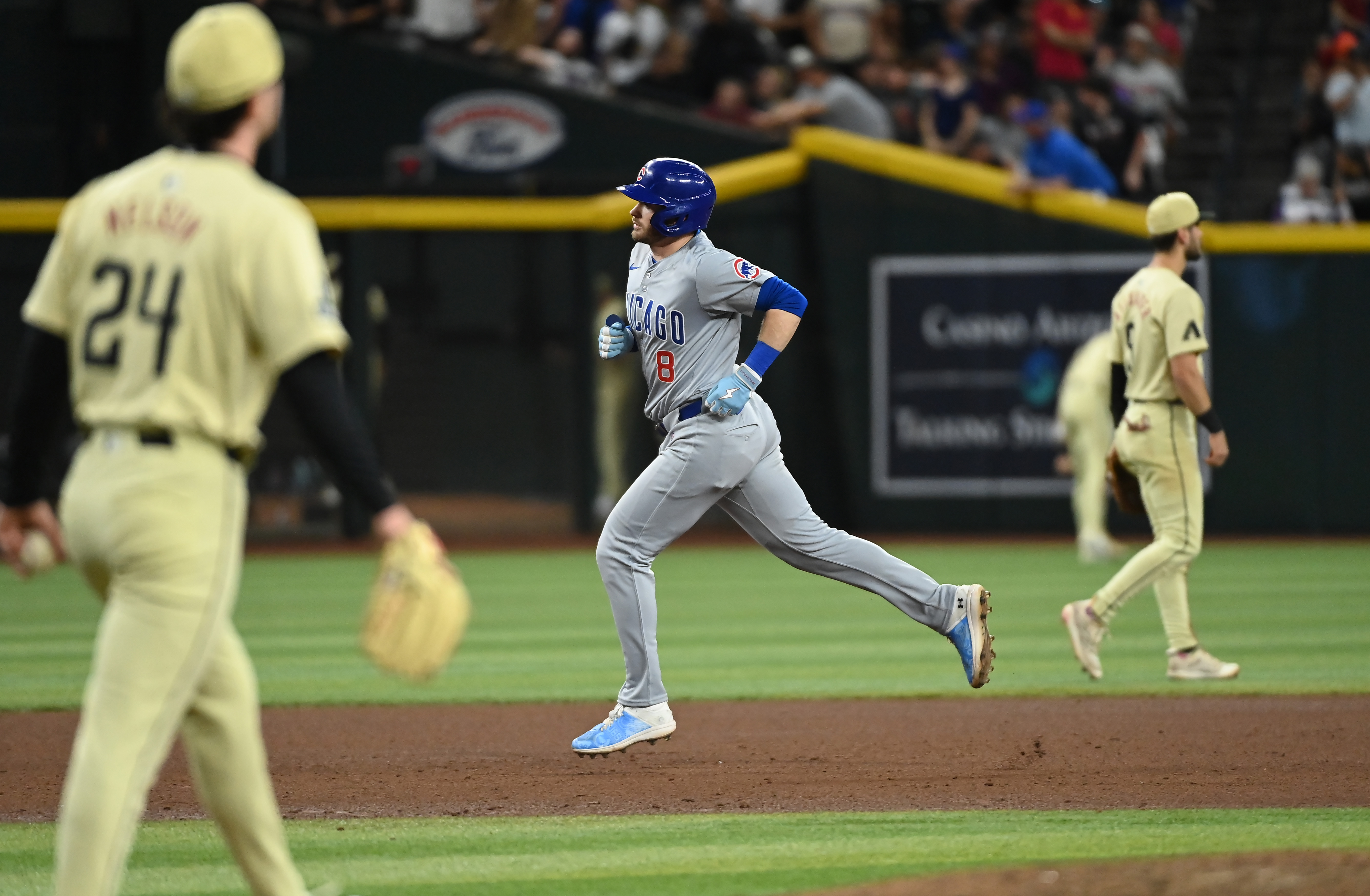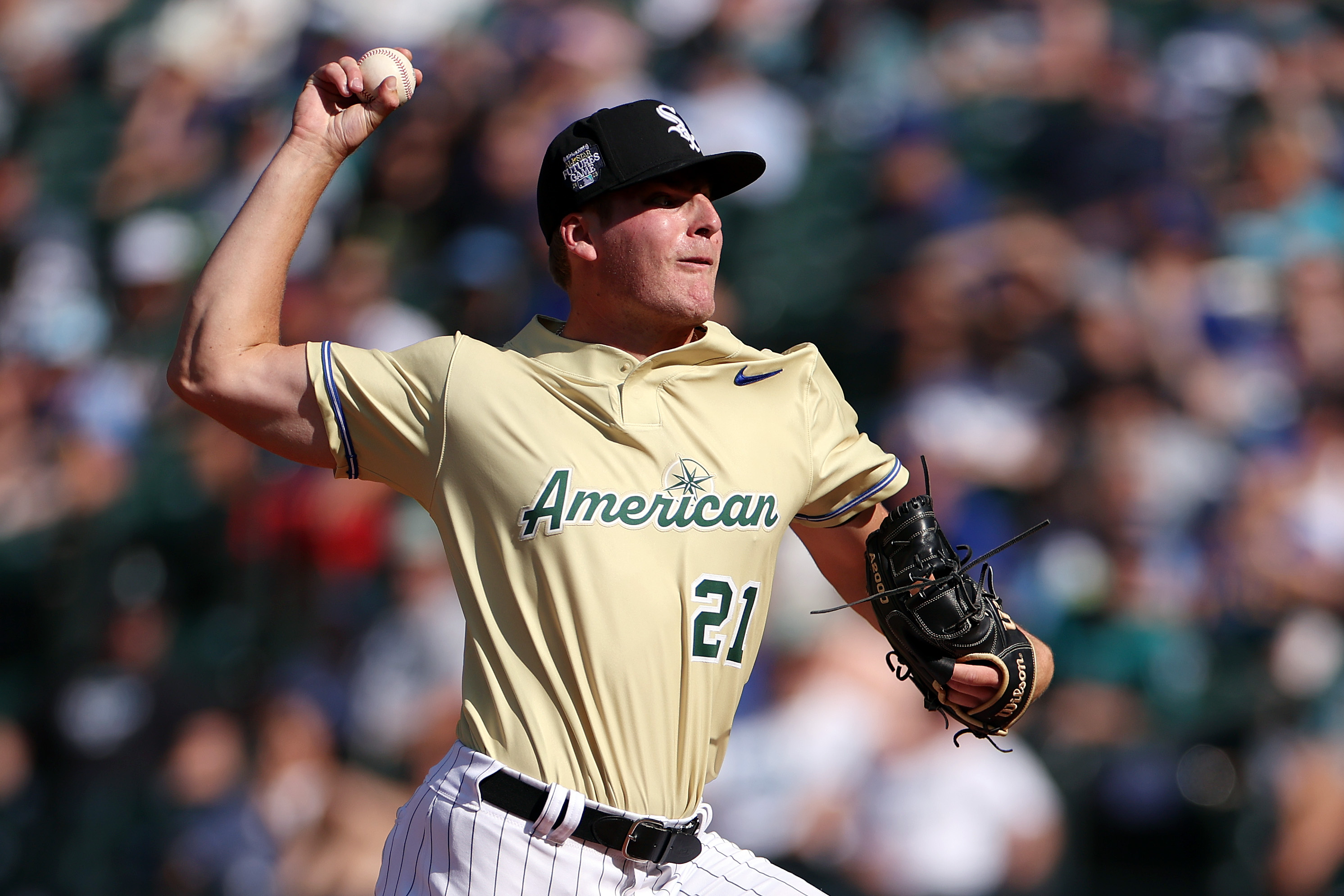Yoelqui Céspedes admitted he didn't know much about the White Sox. But that didn't stop him from feeling comfortable.
"I kind of had a feel for ... this organization because I saw that they have a very good group of Cuban players," he said through team interpreter Billy Russo in January. "And I think that made easier my decision to sign with this organization."
Norge Vera? Same thing.
Stay in the game with the latest updates on your beloved Chicago sports teams! Sign up here for our All Access Daily newsletter.
"I’ve been following the team for a couple of years because of all the Cuban players they have," he said through Russo last month. "It was something that definitely made me feel comfortable signing with this team."
RELATED: 'Six-tool player' Luis Robert starts Year 2 with new Trout comp
The team made a couple more international-signing splashes this winter, inking the top ranked player in this year's class, Céspedes, and the top ranked pitcher, Vera. Both hail from Cuba.
Meanwhile, in the major leagues, José Abreu, Yoán Moncada, Luis Robert and Yasmani Grandal make up nearly half the starting lineup. All four were born in Cuba.
MLB
Not only is the Cuban connection alive and well on the South Side, but it's playing a bigger role than ever, helping fuel the White Sox championship-level expectations for both the present and future.
"I think everybody knows that the White Sox like the Cuban players, the Cuban talent. And I think us as Cubans, we are glad and we appreciate that the White Sox have been a constant influence in Cuban baseball," Moncada said through Russo earlier this month. "For me, it just makes me feel proud to be a part of an organization that really takes care of and values the Cuban players.
"I think that's something that everybody in Cuba knows, and I think that's why, probably, for the Cuban players, it's easier now to lean to the White Sox."
Moncada did not choose the White Sox, acquired in a trade with the Boston Red Sox in 2016. But the way he speaks about being a part of the franchise's Cuban tradition, it sounds like he wound up where he was meant to be.
Robert did get to make that choice, and like those youngsters just making their way into the organization, he said he did it with the Cuban connection in mind.
"As Cubans, it's always good for us to have some sort of familiarity with the team that we're going to play (for). I think that makes our decision easier," he said through Russo in an interview with NBC Sports Chicago last week. "Just knowing that when you have offers from different teams, one of those teams is the White Sox and you know what they've done with Cuban players, you know that when you sign with that team, you're going to have other Cubans that are going to take care of you, that can help you in the adjustment process.
"That's something that you really can't measure, how valuable that is for us. But it's something that plays a big role in our decision when we choose a team."
Obviously, the millions of dollars in signing bonuses help lure players of any background. But the White Sox have a true selling point that, teamed with financial aggressiveness, has worked well.
"Having the amount of Cuban players in our system, not only at the big league level but at the minor league level, it creates more awareness, and guys are more inclined to like what we do and how we do it," Marco Paddy, the White Sox special assistant to the general manager for international relations, said last month. "I think it helps tremendously, having that publicity of these guys and how well they've done with our major league club."
Like much of what's going good for the White Sox these days, it started with Abreu.
Abreu was one of the best players in Cuba, and since signing with the White Sox ahead of the 2014 season, he's become one of the best players in franchise history. He's the reigning American League MVP, just the third Cuban ever to win an MVP award in the major leagues.
Being able to claim someone of that stature when courting young Cuban talent is a plus. Having someone of that stature actively helping in the process is even better. Not only was Abreu part of the White Sox recruitment video when they were attempting to sign Robert, but he's acted as perhaps the team's strongest selling point with what he's done after the fact, shepherding first Moncada and now Robert into the major leagues.
"Having the experience to play alongside Abreu has been extraordinary," Robert said. "People (in Cuba) just love him. People over there talked a lot about him and the things that he did when he was playing over there.
"Now that I have the chance to play with him, I can really say that it's an incredible feeling because I am playing alongside one of the Cuban legends, a great human being, a guy that really cares about you. ... I don't know exactly how to describe the feeling, but it's definitely something very emotional for me, being a countryman.
"He took me under his wing, and it was really like I was his son. That's something that I really appreciate. You can't measure that.
"I don't know — and I don't really want to think about — how that would be in another organization. I'm just glad that I made the right choice, that I have other countrymen here with me taking care of me and helping me out."
Abreu's playing days won't last forever. But his mentoring of Moncada and Robert is already paying dividends for the long-term health of the team's Cuban tradition. Moncada acted like a junior Abreu when Robert made his first appearance at a White Sox minicamp, driving Robert to the complex every day and taking him out for food. Robert, just 23 years old, is already itching for his chance to pass it on.
"José, he's given us that example, and it will be perfect for us to follow that example," Robert said. "That's the kind of person that you want to be. ... And now that you have that example, I think it's going to be easier for us to follow because we already know what to do with the younger players when they arrive here.
"It's definitely something that I would like to do, and I'm pretty sure Moncada would like to do that, too."
They're almost sure to have that chance.
Both players signed long-term contract extensions last year, Moncada under team control through 2025 and Robert through 2027. They figure to be around should Céspedes, Vera or Yolbert Sánchez, another Cuban signee, reach the big leagues, continuing a legacy that stretches back to Minnie Miñoso across the last seven decades.
It's allowing Moncada to dream big.
"The White Sox have had a long history, a long tradition of Cuban players, and that's something that makes us feel happy and comfortable with the organization. And for me, especially, that's something that made me (want to) do better to represent this organization and to continue that legacy," he said. "Maybe someday we'll have a full Cuban team here with the White Sox. We'll see when that happens."
A smile revealed that last bit was a joke. But Robert likes the sound of it.
"Can you imagine that? An all-Cuban White Sox lineup? That would be great."
Click here to subscribe to the White Sox Talk Podcast for free.


